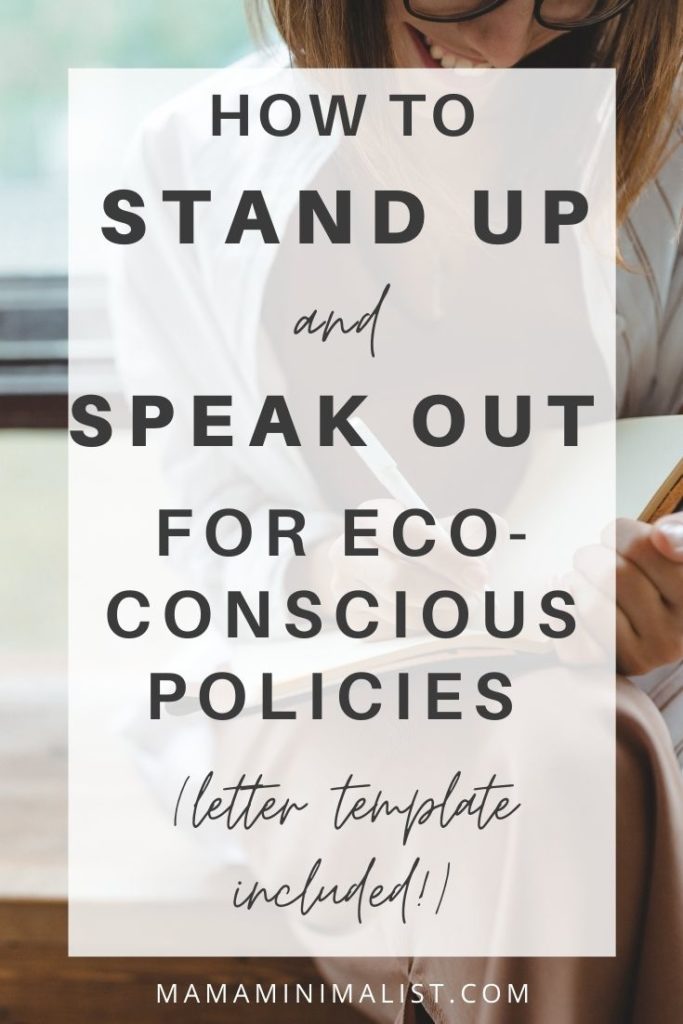How to Stand Up and Speak Out for Eco-Friendly Policies
Stand Up for Eco-Friendly Policies
I’ve come to a sad-but-true realization recently and it’s this: I can use as many rags in place of paper towels —I can tote my reusable bags to the store and use a shampoo bar, even!—but all these changes on the household level are fruitless unless they’re backed by my loud voice advocating for policy change.
That’s why I am resolving to Stand Up and Speak Out by contacting companies and businesses every single time something doesn’t seem quite right from an eco-conscious standpoint.
What does it mean to Stand Up and Speak out, exactly?
Here are 3 specific examples from my real-life:
Example 1: Stand Up and Speak Out when Something Could Be Done Better.
_____
My absolute favorite spin studio in the world gives out not 1 but 2 plastic water bottles to EVERY rider during every ride. (Sad Face.)
There are so many things wrong with this. The room holds 50 bikes. That’s 100 plastic water bottles heading straight to our oceans per class, and what’s worse, there’s an easy remedy – everyone brings their own bottle and the studio offers filtered water.
Simple + easy, right? I’ve asked them to update their policy + here’s the kicker – I’ve told them I can’t continue paying a monthly membership fee for a brand so out of line with my values.
_____
Take the stress out of Standing Up.
_____
If Standing Up + Speaking Out sounds like a great resolution but you absolutely hate writing letters, I’ve got you covered.
I’ve created a customizable template to make joining me as easy as pie: Keep this template on your desktop, hit the Contact Us button on a perpetrator’s website + customize the template to suit your purposes.
Grab it here:
_____
Example 2: Stand Up and Speak Out When You See Something Ridiculous.
_____
A few years back, when Kleenex came up with their newest (wasteful) product—disposable hand towels, to be exact—I wrote a strongly worded letter to the company voicing my concerns and making it clear that I will not give Kleenex my business as long as it totes purely disposable products across its product line.
Example 3: Stand Up and Speak Out When your Beloved Products Don’t Meet the Mark.
_____
I vow to regularly contact brands I use + love to ask them to reflect eco-conscious packing practices.
I enjoy Nivea body lotion, for example, but it only comes in a plastic bottle. I’ve contacted them to make clear my plastic-free lifestyle + inquire whether they have plans to update their eco-harmful packaging practices.
One final word …
_____
I’m under no misguided assumptions that I have the power to change eco-harmful companies all by myself.
It’s my hope that if we all make if a habit of getting vocal AS WELL AS putting our money where our mouths are – that is by choosing not to support eco-harmful businesses – we can start to move the needle toward eco-conscious product development + design.


